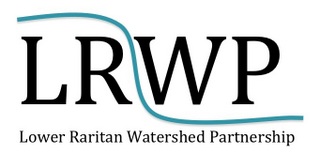May 21 – General Meeting: All about Forage Fish!
At our monthly meeting on May 21 (10-noon) we will welcome Zack Greenberg with the Pew Charitable Trusts for a special presentation on forage fish and ecosystem-based fisheries management (EBFM).
Zack is a Senior Associate at The Pew Charitable Trusts, focusing on marine conservation issues as a part of their U.S. Oceans, Northeast team. At Pew, Zack is raising awareness about the importance of adopting a big picture approach to marine conservation called ecosystem-based fisheries management or “EBFM”, which recognizes that every part of the marine ecosystem, from seagrass to whales, are interconnected. Zack’s primary focus is to advance protections for forage fish like menhaden, river herring and shad. How these essential forage species are managed has huge implications for the future of the ocean food web and many of the sportfish, marine mammals and birds we enjoy today.
The meeting will be held from 10-noon in the Middlesex County Planning Offices at 75 Bayard Street, New Brunswick, NJ – 5th floor mid-size conference room.
Parking is validated for those parking on floors 5 and higher in the RWJ Wellness Parking Deck located at 95 Paterson Street, New Brunswick, NJ 08901. Be sure to bring your ticket to the meeting for validation.
For more information contact Heather: hfenyk AT lowerraritanwatershed DOT org
Presentation Topics
- Magnuson-Stevens Act
- Forage and EBFM
- River Herring and Shad
Magnuson-Stevens Act
The MSA is the primary law governing marine fisheries management in the United States. It setup many of the regulatory systems and management tools we are familiar with today. The MSA is credited with rebuilding 43 once-overfished populations since 2000, but U.S. fisheries still face significant challenges, including continued vulnerability to overfishing, habitat destruction, and changing ocean conditions—factors that highlight a need to strengthen, not weaken, the MSA.
Forage and EBFM
Forage fish are the foundation of healthy marine ecosystems. Sportfish, like striped bass, summer flounder, and bluefish, as well as popular wildlife, such as osprey and whales, need healthy forage fish populations to thrive. Despite forage fish being an increasingly valued commodity, the MSA currently does not ensure they are managed to account for their ecological role. Protecting forage is the best way to guarantee abundant food and a healthy ocean for marine life, which draws millions of people to the coast for fishing, boating, diving and other recreational opportunities.
River Herring and Shad
River herring and shad once supported large commercial and recreational fisheries. However, the damming of spawning rivers, combined with habitat degradation, overfishing and bycatch at-sea have depleted their populations. In February, the Atlantic mackerel fishery was shut down due to bycatch of river herring and shad, and in March the Atlantic herring fishery closed in southern New England for the same reason. With effective federal management and conservation policies at-sea, rivers up and down the East Coast could once again come to life with thousands of migrating fish.

